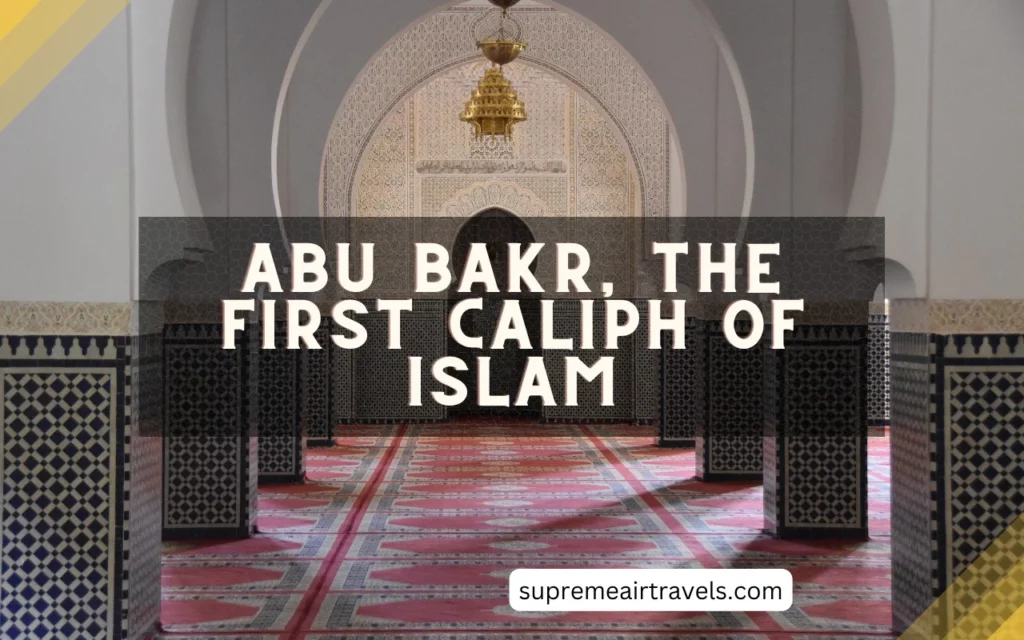Abu Bakr, the first Caliph of Islam


Abu Bakr Abdullah ibn Uthman Abi Quhafa, also known as al-Siddiq, was a prominent figure in Islamic history. He was a senior companion of the Islamic prophet Muhammad and the first Caliph of the Rashidun Caliphate. Born in 573 CE to a wealthy family, Abu Bakr was a monotheist who strongly opposed idol-worshipping.


After his conversion to Islam in 610, Abu Bakr became a close aide to Muhammad and played a pivotal role in almost all his military conflicts. He also contributed extensively to Muhammad’s work and invited many prominent Sahabis to become Muslims. Following Muhammad’s death in 632, Abu Bakr was elected as the first Rashidun Caliph, despite opposition from rebellious tribal leaders who had apostatized from Islam.
During his reign, Abu Bakr faced numerous uprisings, collectively known as the Ridda Wars, but he was able to consolidate and expand the rule of the Muslim state over the entire Arabian Peninsula. He also commanded the initial incursions into the neighboring Sassanian and Byzantine empires, which eventually resulted in the Muslim conquests of Persia and the Levant. Apart from politics, Abu Bakr is also credited for the compilation of the Quran, of which he had a personal caliphal codex.
Abu Bakr’s legacy in Islamic history is significant.


Abu Bakr’s legacy in Islamic history is significant. Although his caliphate was short, it included successful invasions of the two most powerful empires of the time, a remarkable achievement in its own right. He set in motion a historical trajectory that led to one of the largest empires in history. His victory over the local rebel Arab forces is a significant part of Islamic history.
Abu Bakr’s contribution to the development of Islamic law and the establishment of the Caliphate system is also noteworthy. He nominated his principal adviser Umar as his successor before dying of natural causes in August 634. Today, Abu Bakr is widely honored among Muslims, and his burial site alongside Muhammad in the Green Dome at the Al-Masjid an-Nabawi in Medina is considered one of the holiest sites in Islam.
Conclusion
Abu Bakr was a remarkable figure in Islamic history, who played a crucial role in the establishment of the Muslim community and the early expansion of the Islamic empire. His achievements, legacy, and contributions to Islamic history continue to inspire Muslims around the world today.
If you’re planning to embark on a spiritual journey to Mecca for Umrah, you’ll need to secure an Umrah visa before your trip. Our easy-to-use Umrah visa form simplifies the process and helps you obtain your visa quickly and efficiently. Simply fill out the form with your personal and travel information, and we’ll take care of the rest.







